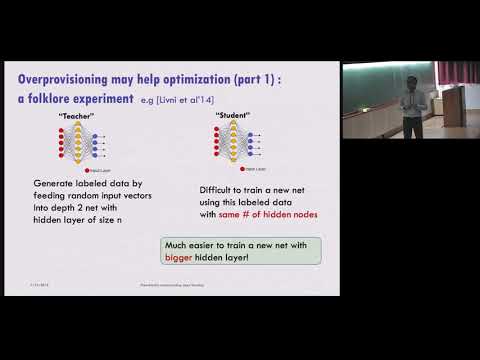Description:
Explore the theoretical foundations of deep learning in this comprehensive lecture by Sanjeev Arora from Princeton University and the Institute for Advanced Study. Delve into the mathematics behind machine learning, focusing on supervised and unsupervised learning techniques. Examine the challenges of overparameterization, optimization, and generalization in deep neural networks. Investigate landscape analysis, trajectory analysis, and the manifold assumption in unsupervised learning. Learn about deep generative models, including Generative Adversarial Networks (GANs), and their associated challenges like mode collapse. Gain insights into cutting-edge research directions and potential areas for theoretical exploration in the field of deep learning.

Toward Theoretical Understanding of Deep Learning - Lecture 2
Add to list
#Computer Science
#Deep Learning
#Machine Learning
#Unsupervised Learning
#Artificial Intelligence
#Neural Networks
#Gradient Descent
#Generalization